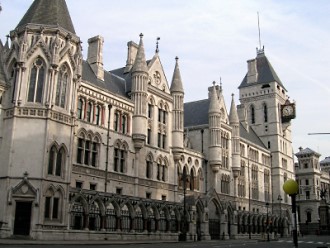Home Office concedes that it was acting incompatibly with its legal duties when subjecting individuals with clear indicators of trafficking to the fast track process
In the latest of a line of court defeats for the Government, the High Court declared yesterday that the operation of the detained fast track system breaches the rights of potential victims of trafficking because it fails to identify them as soon as possible, Garden Court Chambers reported.
As such, trafficking victims faced being detained unlawfully and denied essential services and safeguards normally available to victims of crime. Criminal investigations by the police into trafficking were also delayed.
 Yesterday's case was the second in a group of test cases, following on from the 3 July 2015 case which led to the Home Office's announcement that the fast track system would be suspended after it was found to be operating unlawfully.
Yesterday's case was the second in a group of test cases, following on from the 3 July 2015 case which led to the Home Office's announcement that the fast track system would be suspended after it was found to be operating unlawfully.
According to Garden Court, the Home Office has now also recognised and conceded that it was also acting incompatibly with its legal duties when detaining and subjecting individuals with clear indicators of trafficking to the fast track asylum process.
Doughty Street Chambers reports that the Home Office failed to:
• Identify the claimants as potential victims of trafficking;
• Investigate their claims;
• Make a referral into the National Referral Mechanism for the identification of victims of trafficking (the NRM) or a referral to the police for further investigation;
• Inform the individuals of the NRM process and of their rights;
• Release them from the detained fast track system.
The High Court also declared that the detained fast track operated in a manner which discriminated against vulnerable groups contrary to section 149 Equality Act 2010.
According to Doughty Street Chambers, Mr Justice Blake approved an agreed order and statement of reasons making eight declarations that three potential victims of trafficking had been unlawfully detained. The order and statement of reasons is available here.
Garden Court Chambers stated: "The High Court victory today will allow these asylum seekers, and others in similar situations, to seek redress for being unfairly processed within a detained fast track system, acknowledged by the Government to be unfair, discriminatory and in breach of well-established principles prohibiting slavery. The Home Secretary accepts each claimant in this litigation should now have the opportunity to have their trafficking circumstances fully investigated and their asylum claims considered fairly in a normal process. The Home Secretary also accepts that her conduct leading to the unlawful detention of these three victims will result in compensation. A number of other asylum seekers, represented by Garden Court Chambers, were held in immigration detention, despite reporting traumatic stories of exploitation and trafficking. Their claims will be considered at a future date."
"More broadly, the Home Secretary has agreed that an urgent review will be undertaken to examine all evidence about unfairness in the Detained Fast Track and to address any shortcomings identified. In any review, the Home Secretary accepts that she must comply with her equalities duties and make public how she has done so."
Stephanie Harrison QC of Garden Court Chambers was quoted as saying: "Too often the policy of the Government, which seeks to demonise and criminalise those seeking asylum, means that in practice, those responsible for the real crimes go unchallenged, whilst the survivors of grave ill-treatment are locked up and exposed to further risk of abuse when they are wrongly removed from the UK. The Home Office must now act to confirm that it will exclude from any reformed fast track process any case where there are indicators of human trafficking, including forced labour, sexual and other exploitation."